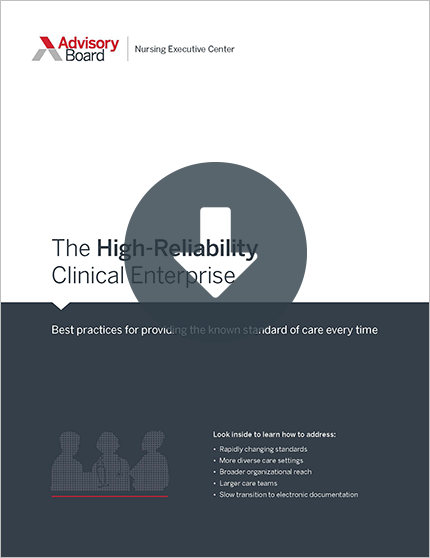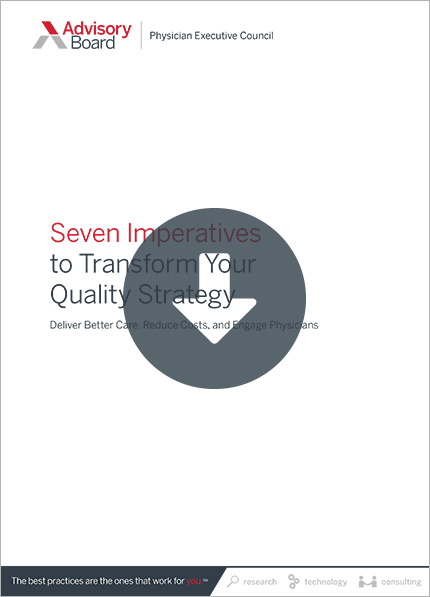Auto logout in seconds.
Continue LogoutProsecutors in Tennessee have charged a nurse with reckless homicide and patient abuse for a fatal medical error—but some experts say the "unprecedented" charge could jeopardize patient safety by making hospital staff hesitant to report errors.
Your cheat sheets for understanding health care's legal landscape
A fatal error
According to a CMS report investigating the incident, RaDonda Vaught, a nurse formerly employed at Vanderbilt University Medical Center (VUMC), in December 2017 was preparing Charlene Murphey, a 75-year-old woman admitted to VUMC for a subdural hematoma, for an imaging scan when she mistakenly gave the patient vecuronium, a paralytic drug used during anesthesia. The patient, who died in the ICU the following day, was supposed to receive midazolam, an anti-anxiety medication known by the brand name Versed.
According to the report, Vaught mistakenly took the wrong drug from one of the hospital's electronic prescribing cabinets. Vaught could not find Versed in the prescribing system and used the system's "override" feature to look up "ve," the first two letters in the drug's name. She chose the first drug in the list, which was vecuronium. Vaught's lawyer told "Shots" via email that the nurse's employment was terminated after the incident.
According to "Shots," both the Tennessee Department of Health and CMS conducted investigations into the matter. The state health department ultimately took no action to revoke Vaught's license, and CMS' report on the incident emphasized the hospital's role in ensuring "all patients received care in a safe setting." According to the Nashville Tennessean, VUMC submitted a corrective plan to CMS following the incident aimed at preventing medical errors.
The Davidson County District Attorney's Office in Tennessee in February charged Vaught with reckless homicide and patient abuse. The DA's office said it chose to bring the charges because Vaught administered the medication after overriding a safety mechanism within the dispensing machine.
Vaught has pled not guilty to the charges.
Case prompts questions over medical error disciplinary actions
The American Nurses Association (ANA), legal experts, and patient safety experts say the case raises important questions about how medical errors should be addressed.
For instance, many experts argue that criminally prosecuting providers for medical errors could have adverse effects on patient safety, and make providers more hesitant to report errors.
In an op-ed for the Philadelphia Inquirer, Jason Jaewan Lee, a nurse at Mount Sinai in New York City, wrote that he was "alarmed" by the charges. He wrote, "Prosecuting health care workers for errors sets a dangerous precedent: it says that to err is criminal, not human."
In a statement, ANA similarly said, "Health care is highly complex and ever-changing resulting in a high risk and error-prone system. However, the criminalization of medical errors could have a chilling effect on reporting and process involvement."
Suen Ross, president of ANA, said the prosecutor's case was "unprecedented" because the error doesn't appear to have involved malicious intent or intoxication, two instances in which she agreed disciplinary action would be warranted. She added that it's important that providers feel they can report errors without fear of retribution. This approach encourages transparency "that prevents future mistakes or errors from happening," Ross said.
Kirstin Manges, a nurse and researcher at the University of Pennsylvania, said most medical errors happen because of systemic issues and that hospitals should account for potential errors with safety checks and protocols, such as requiring nurses to scan a bar code from a pharmacy and on a patient's identifying bracelet before administering medication.
Manges said she worries Vaught's case could change current precedent. "It shifts that conversation from 'to err is human' to 'to err is criminal,'" she said.
DA says court case will reveal more details
DA spokesperson Stephen Hayslip told "Shots" in an email that additional information about why it's pursuing the case "will become more evident as the evidence is presented to the court."
A VUMC spokesperson in February after the charges had been announced said, "We have cooperated fully with regulatory and law enforcement agencies investigating the incident," adding, "That includes providing background information about the event itself, along with physical evidence, requested health records information and other documents" (Kelman/Tamburin, Nashville Tennessean, 3/27; Gordon, "Shots," NPR, 4/10; Lee, Philadelphia Inquirer, 2/21; Knowles, Becker's Clinical Leadership & Infection Control, 2/5; Tennessee Bureau of Investigations release, 2/4).
Your cheat sheets for understanding health care's legal landscape
To help you keep up with the ever-changing regulatory environment, we recently updated our cheat sheets on some of the most important—and complicated—legal landmarks to include a brand new one-pager on the new tax law.
Check out the cheat sheets now for everything you need to know about MACRA, the Affordable Care Act, antitrust laws, fraud and abuse prevention measures, HIPAA, and the two-midnight rule.
Don't miss out on the latest Advisory Board insights
Create your free account to access 1 resource, including the latest research and webinars.
Want access without creating an account?
You have 1 free members-only resource remaining this month.
1 free members-only resources remaining
1 free members-only resources remaining
You've reached your limit of free insights
Become a member to access all of Advisory Board's resources, events, and experts
Never miss out on the latest innovative health care content tailored to you.
Benefits include:
You've reached your limit of free insights
Become a member to access all of Advisory Board's resources, events, and experts
Never miss out on the latest innovative health care content tailored to you.
Benefits include:
This content is available through your Curated Research partnership with Advisory Board. Click on ‘view this resource’ to read the full piece
Email ask@advisory.com to learn more
Click on ‘Become a Member’ to learn about the benefits of a Full-Access partnership with Advisory Board
Never miss out on the latest innovative health care content tailored to you.
Benefits Include:
This is for members only. Learn more.
Click on ‘Become a Member’ to learn about the benefits of a Full-Access partnership with Advisory Board
Never miss out on the latest innovative health care content tailored to you.


